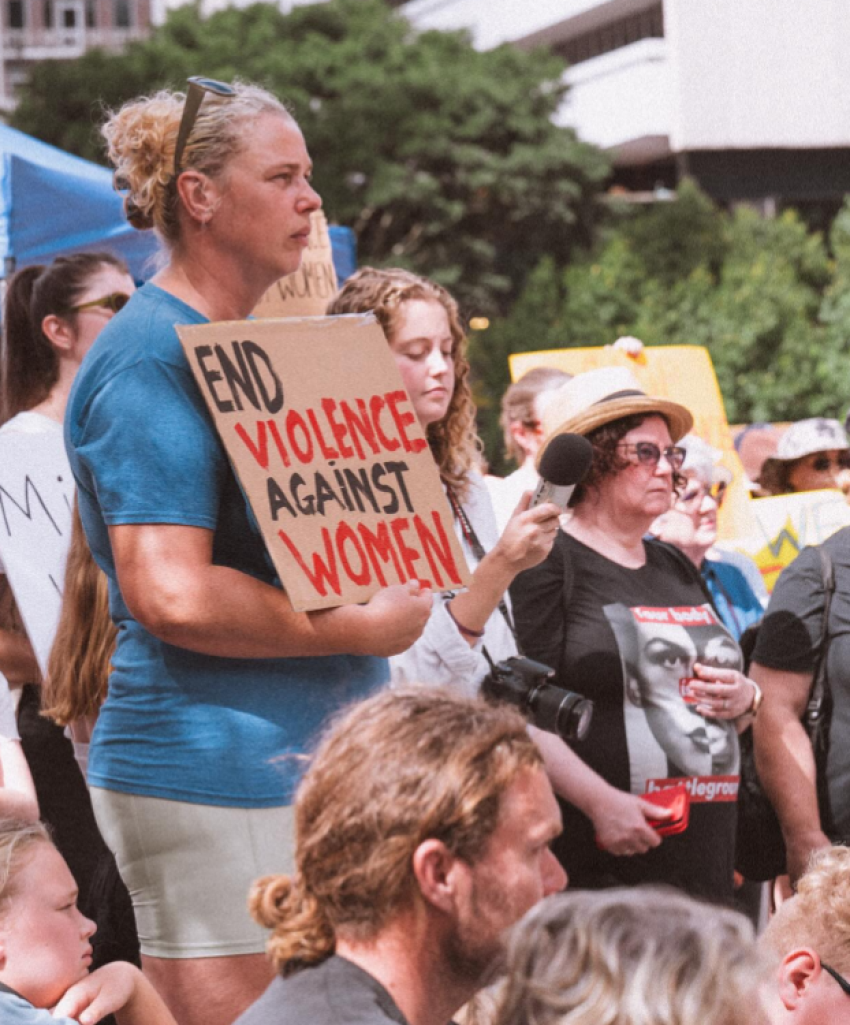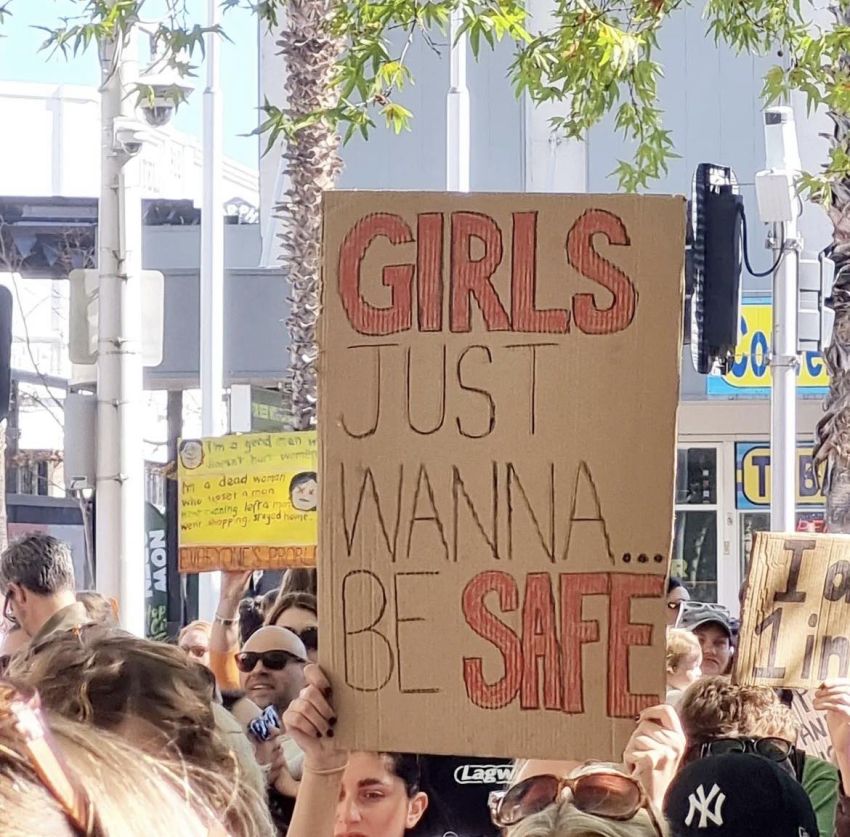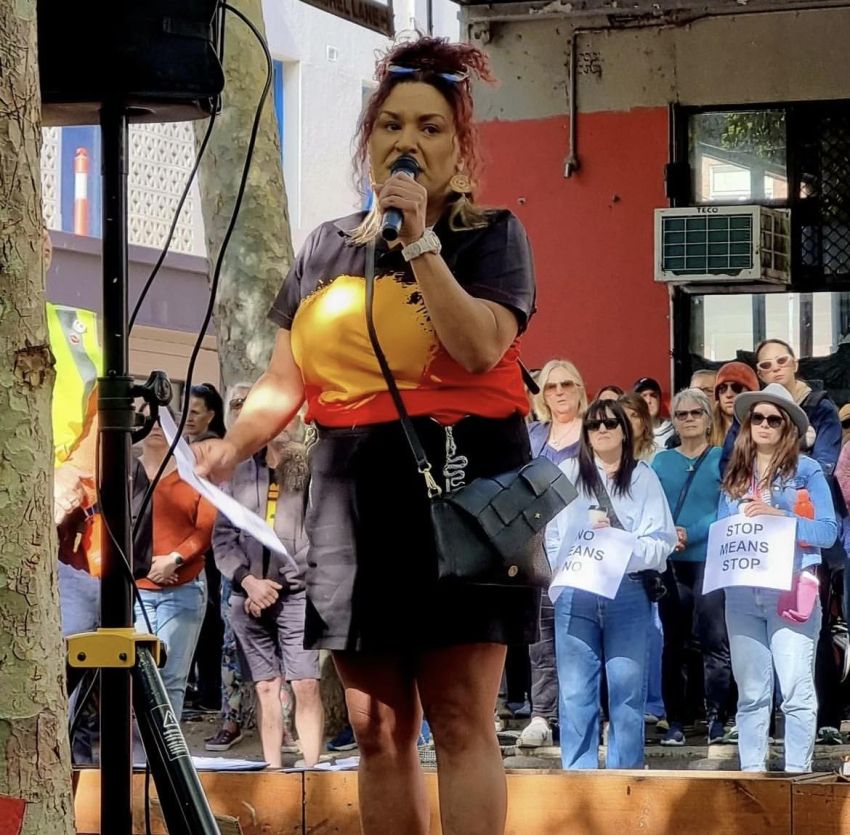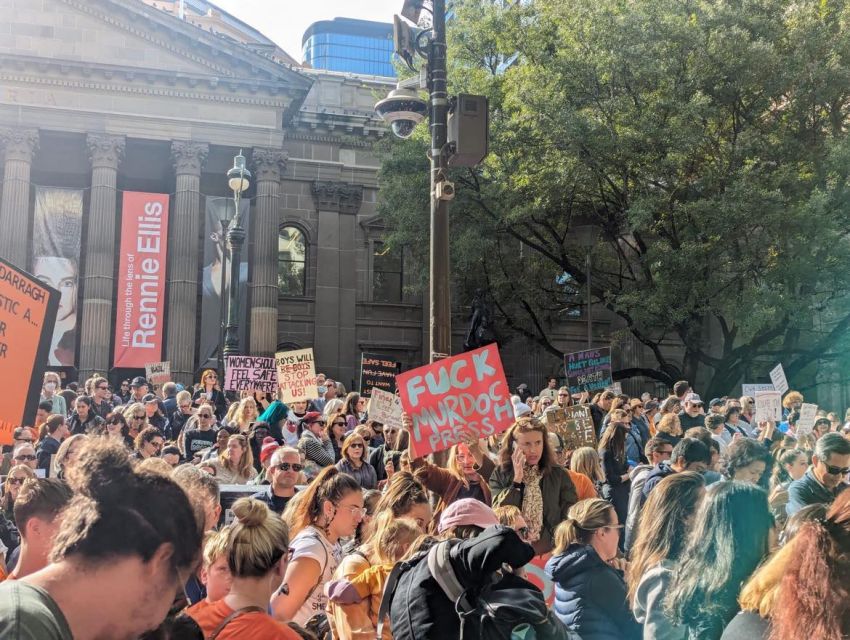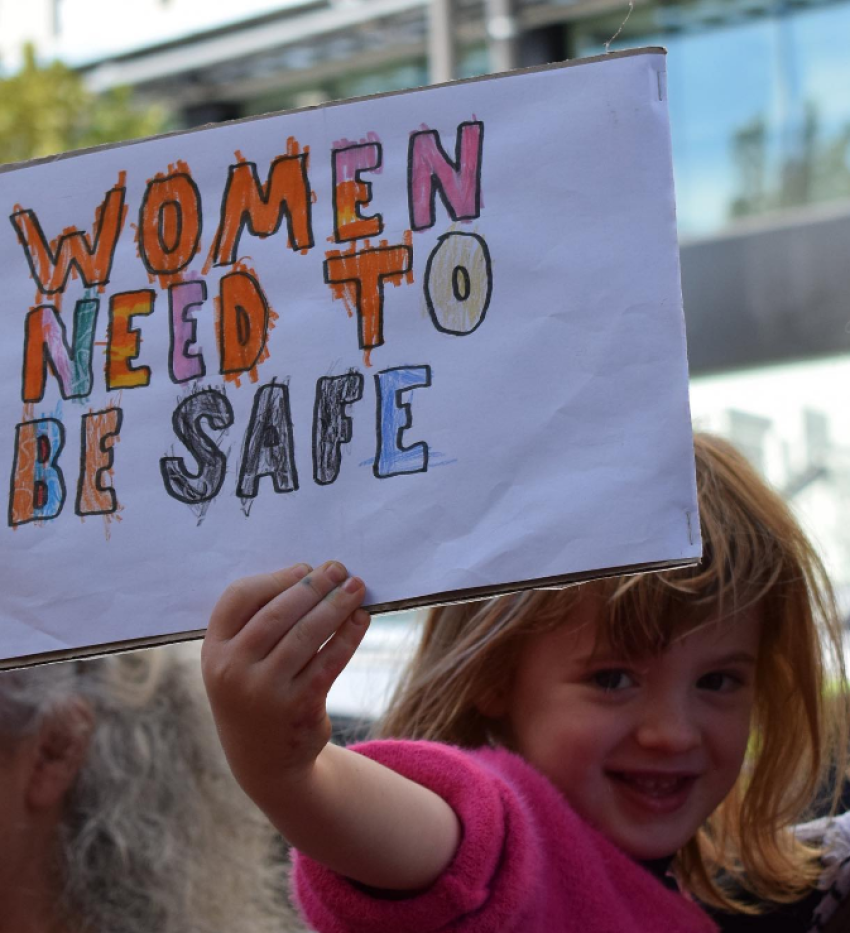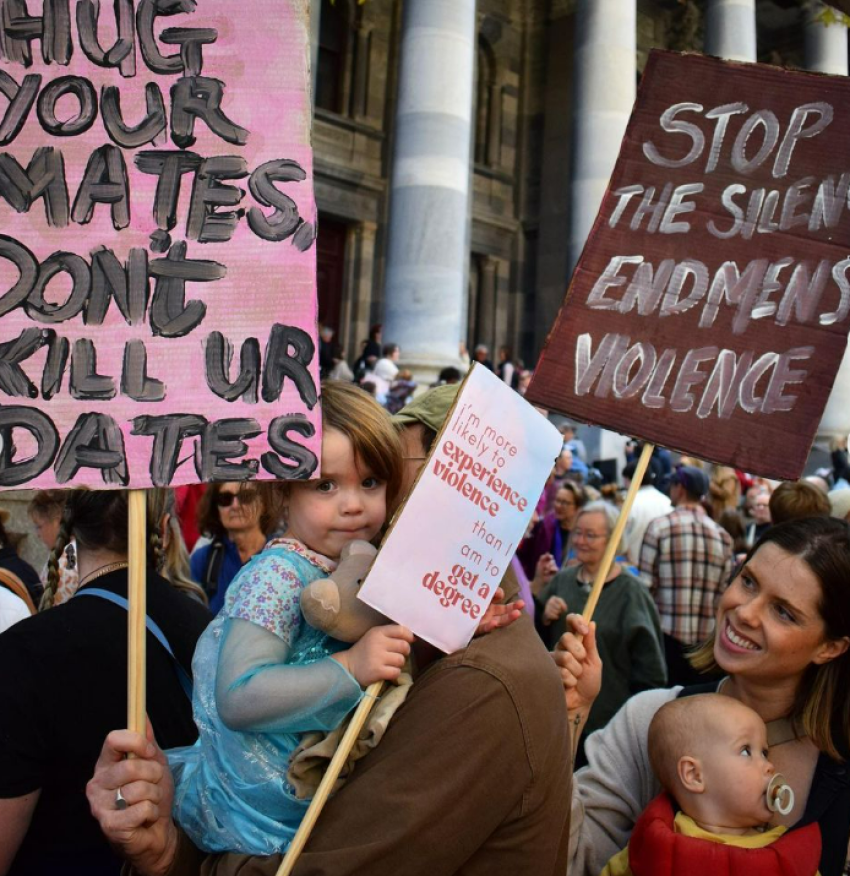
Tens of thousands of people joined mass rallies to demand real action to combat male violence against women, over April 26–27, promoted by the killing of 27 women, so far, this year.
The initiative was led by What Were You Wearing (WWYW), a community organisation “by survivors, for survivors”, fighting to end sexual violence.
Protesters in capital cities and regional towns across Australia demanded this national emergency be treated as one.
Eleven women have been murdered in the month of April alone.
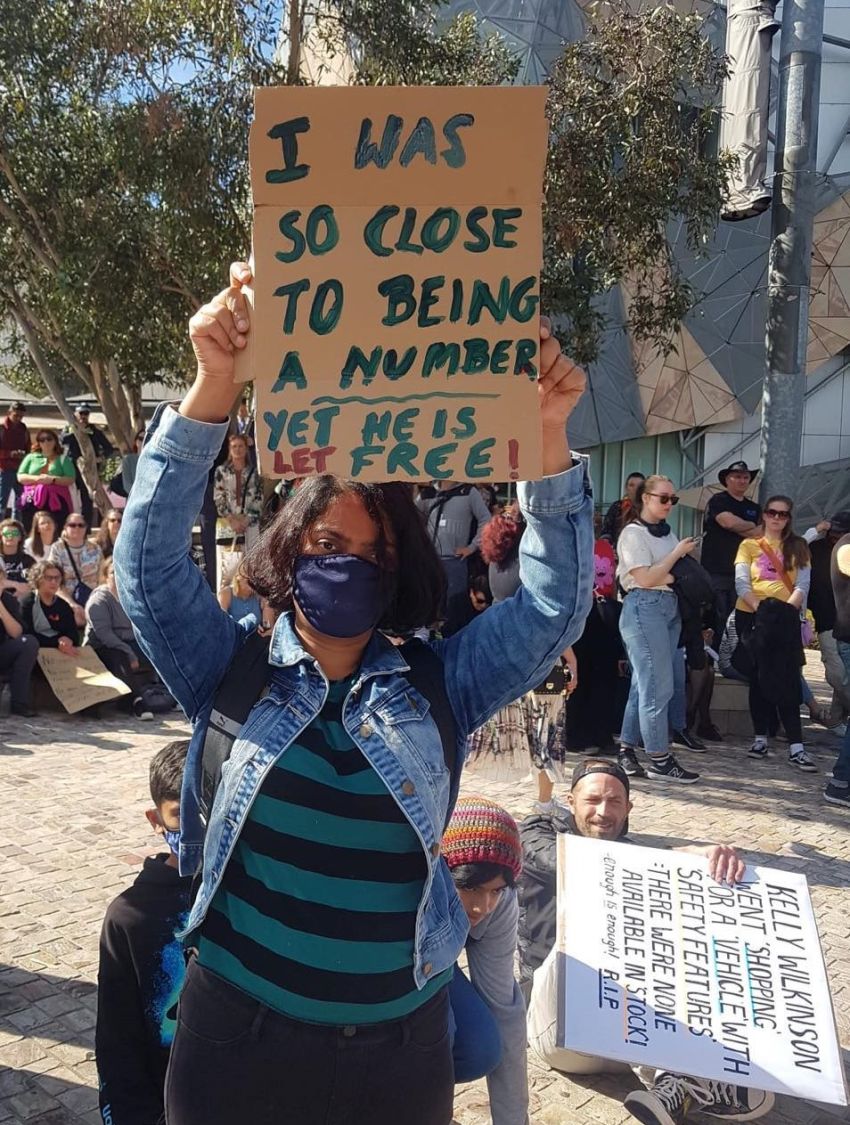
According the New South Wales Council of Civil Liberties, the rate at which women are being murdered women has doubled this year, compared to this time last year.
The most recent alleged murder is of a young mother in Forbes, NSW.
WWYW is calling for changes, including: ensuring police, media and first responders undertake mandatory victim blaming prevention training; giving victims/survivors access to alternative reporting options, including specialist courts; delay media from identifying victims of violence for 48 hours until families have been notified; and boosting in federal funding for victim/survivor organisations, with a minimum of five-year commitments.
Chloe DS reports that between 10,000–20,000 people marched in Naarm/Melbourne from State Library to Federation Square to hear speakers demand an end to victim blaming, for respect, consent and empathy to be taught in schools and justice, equality and safety for all.
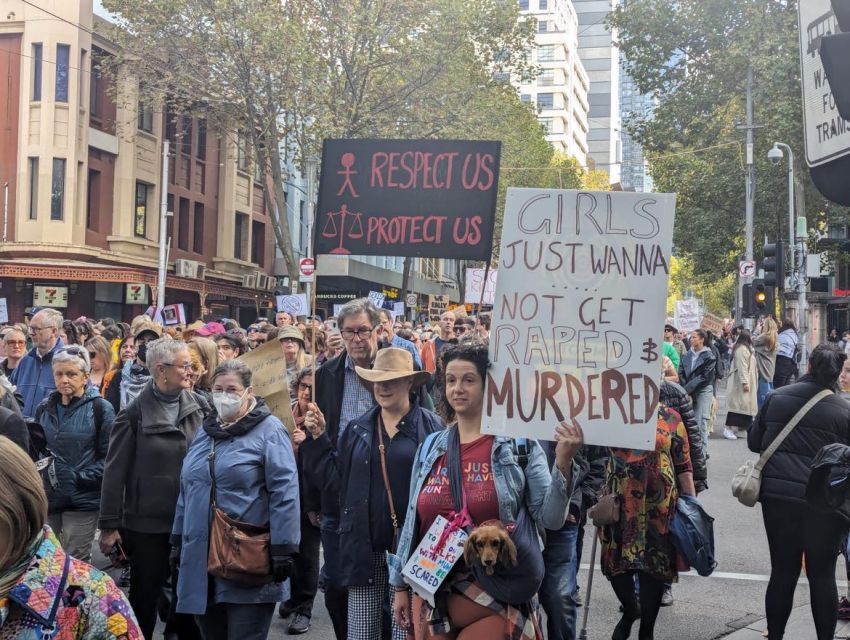
Animal Justice Party member Georgie Purcell spoke about the women’s liberation struggle, arguing it is tied to the struggle for liberation in Palestine “where women's bodies are used as warfare”.
Janine Hendry, from March4Justice, thanked Labor for “small changes” but added that they are not enough. “Women are still being murdered; we are still raped; we are still being threatened, still being stalked, assaulted, still being coerced and discriminated against.”
She said homelessness and poverty are contributing factors, which need to be addressed. The “vast inequality that still exists between men and women” needs to change. “Gendered violence is all about power. Inequality benefits those who hold power, but equality benefits us all,” Hendry concluded.
Coral Wynter reports from Gadigal/Sydney that more than 5000 women and men turned out to the march from Belmore Park to Hyde Park.
Aunty Yvonne, a First Nations woman from Newcastle, said there are many women whose murder has not been documented as gender violence. “We rallied five and a half years ago at Town Hall. We are not taken seriously. It started within the very first days of colonisation. I don’t want to hear another politician say we need to change attitudes. We need action, action, action.”
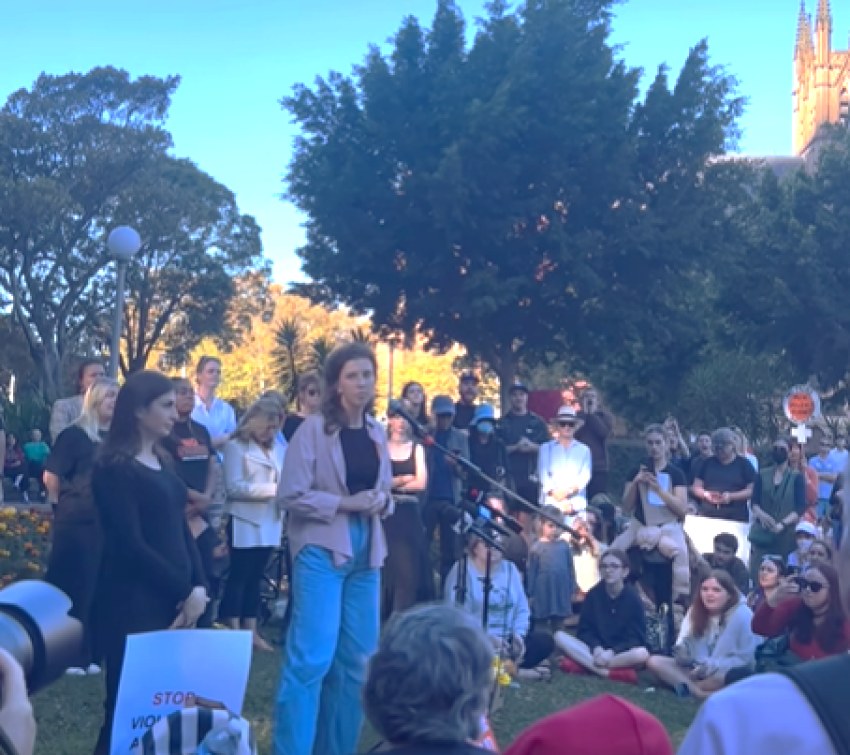
WWYW organiser Sarah Williams said: “I was assaulted three times by three different men. I laid 21 charges against police for the lack of investigation. All the charges were dismissed... We need specialist courts to deal with sexual assault, we need another method of reporting not just to police.”
Some 32 bunches of flowers were placed on the stage at Hyde Park to remember the victims.
Greens, Teal MPs and Labor MPs attended the rallies and some spoke.
Labor Prime Minister Anthony Albanese, who marched in Canberra alongside other MPs, said the problem was not just an issue of “policy”, but of “society”.
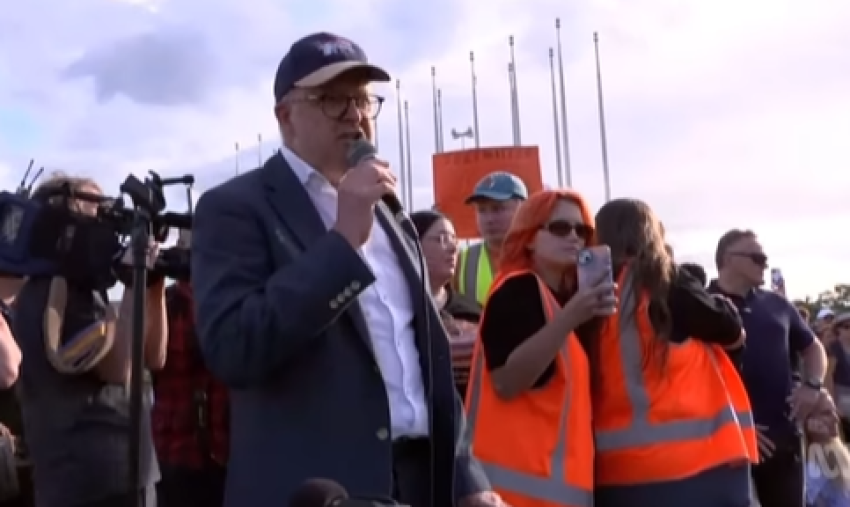
He said he was marching because he wanted change. While mainstream reporting made Albanese sound sympathetic, Sarah Williams, an organiser from WWYW, showed the extent of his tone deafness.
After being handed the microphone, the PM first complained that he and Katy Gallagher MP had asked to speak and been told it “wasn’t possible”. Williams, who was standing next to him, said that was a “full-out lie”, later explaining that only Gallagher had asked to speak.
Albanese ignored Williams and spoke louder. Humiliated, Williams turned away. He turned to look at her, said nothing, and continued.
“We’re here today to demand that governments of all levels must do better … we're here as well to say that society and Australia must do better. We need to change the culture, we need to change attitudes,” Albanese continued, the irony lost on him.
Sam Wainwright reports from Boorloo/Perth that Greens Senator Dorinda Cox and Menang woman and activist Megan Krakouer addressed a huge 6000 people.
They slammed the federal government for not properly funding services, and not calling out genocide in Palestine. The looks on Labor MPs Patrick Gorman and Anne Ally faces were priceless.
Angela Carr reports from Djilang/Geelong that 2000 people protested for government action on men's violence against women.
Alex Bainbridge reports that an energetic march of between 2000–3000 in Magan-djin/Brisbane started at King George Square.
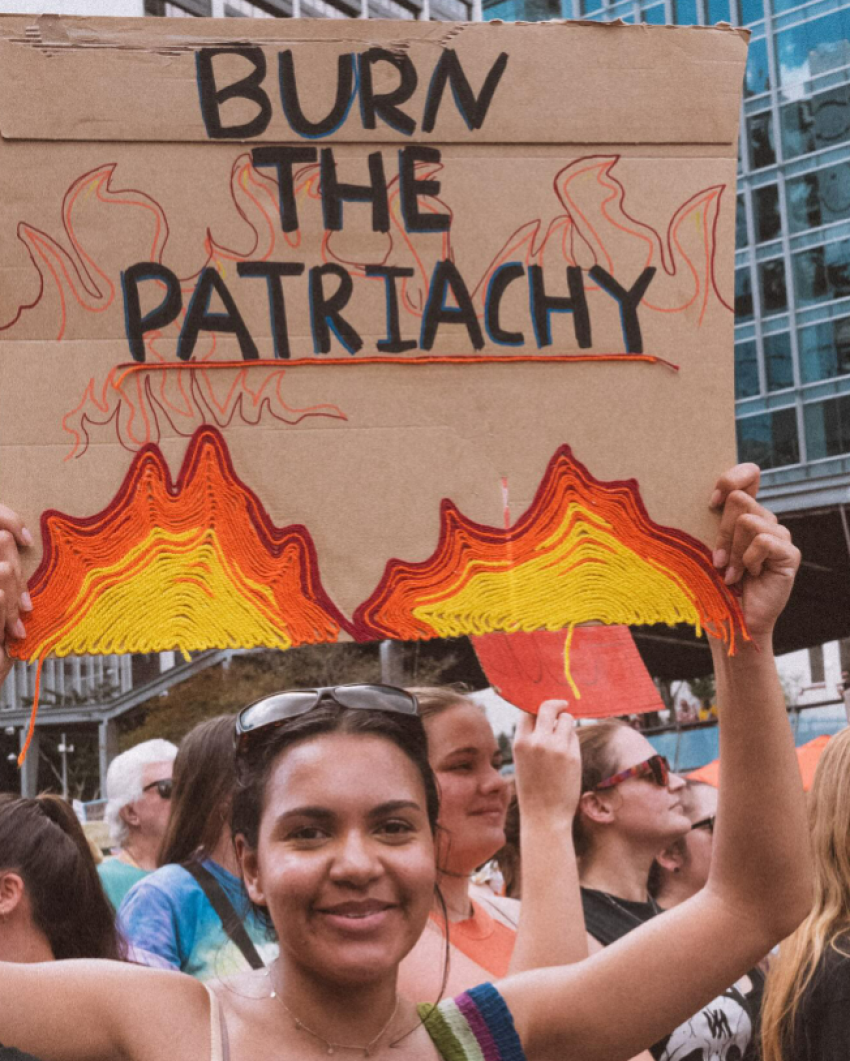
“We are scared, we are furious and we are fed up,” one speaker told the crowd. “My experiences unfortunately are not unique. Why is it that so many of us have to endure abuse?” another asked.
New laws and tougher penalties have been introduced over the past six years, and many women’s organisations do not believe kneejerk legislative responses (including expanding police powers and restricting bail) under the guise of making women safer, will solve the multi-faceted problems.
Many women’s and civil liberties organisations are calling for a federal royal commission into family violence, a demand Labor Attorney General Mark Dreyfus has ruled out.
Victoria had one in 2015, from which 227 recommendations were made which the government promised to implement in full.
It found existing programs were not able to: reduce the frequency and impact of violence; prevent violence through early intervention; support victim survivors; hold perpetrators to account for their actions; and coordinate community and government services.
